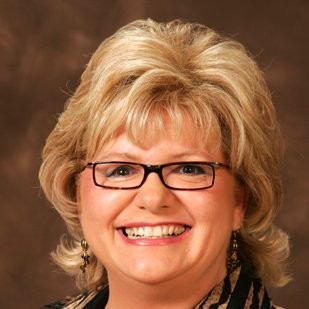
In home care is a childcare option that allows a parent leave their child at home with a caregiver. The caregiver provides regular care. These providers are mostly paid by families and provide many services such as bathing, feeding and other care. Some in-home providers have early childhood experience and are able to offer educational experiences throughout the day.
In-home health aide for disabled child
In-home health care is an important option for children with disabilities, and the availability of this care helps families keep their homes and prevent hospital readmissions. This also lowers the cost and improves outcomes for patients.
Finding a caregiver to work at home with your child is essential. You need to find someone who will understand your family, and provide the care your child deserves.
You can find a home health aide by talking to advocacy groups. They will be able to tell you about the caregivers that are in your locality and what programs and caregivers they have. You might be able get referrals through your local disability agency, or social service office.

After you've compiled a list, conduct a phone interview with each caregiver and then meet them in person. This will allow you to find out more about their experience and qualifications. Ask about their background checks and references, as well as education and training.
Home health aids for children with disabilities
The caregivers should receive training on how to properly care for and use the equipment used by kids with complex disabilities. This includes enteral tubes, tracheostomy equipment, respiratory supports and treatments (e.g. nebulizers), intravenous tube care and medication administration.
Additionally, they need to be taught how resuscitate an injured child. These skills are particularly useful when children become dependent on technology.
The pulse oximeter can help you monitor the oxygen level of your child. This device, which is worn on a finger or toe, measures the amount of oxygen in your child's blood. If oxygen levels drop, the device will alert the caregiver to provide more oxygen.
Another important item that should be in every hospital is a resuscitation bag, which lets you give breaths to your child by squeezing a bag attached to their tracheostomy tube. The bag is useful for emergency situations and should also be available as a backup if the ventilator stops working or if the child needs to be suctioned.

Your child's pediatrician should explain how to use the vent and which type of resuscitation packs are best for your child. The doctor should teach you how to properly use the resuscitation bags and call your child’s doctor in case of emergency.
Once you are more comfortable using your child's medical equipment at home, you can better provide the care and attention they need. Learning how each piece of equipment works and how you can troubleshoot issues will help you better take care your child.
FAQ
What is a public health health system?
The health system refers to all activities involved with providing medical services to a community. It includes service delivery, financing, regulation, research, education, training, and information systems.
What is the difference between a doctor and a physician?
A doctor is an individual who has completed his/her training and is licensed to practice medicine. A physician can be described as a medical professional who is skilled in a specific area of medicine.
What is a Health System?
Health systems encompass all aspects of care, from prevention to rehabilitation and everything in between. It includes hospitals. clinics. pharmacies. community services. public health, primary and long-term health care. home care. mental health and addictions. palliative, end-of life care. emergency medicine. research, education. financing. and regulation.
Health systems are complex adaptive systems. They have emergent properties which cannot always be predicted by looking at individual components.
It is difficult to manage and understand complex health systems because of their complexity. This is where creativity is needed.
Creativity is a way to find solutions to problems that we don't know the solution to. We use our imaginations to create new ideas and develop ways to improve things.
People with creative thinking skills are vital for the health system. They're always evolving.
Individuals who think creatively have the potential to change the way healthcare systems operate.
Statistics
- For instance, Chinese hospital charges tend toward 50% for drugs, another major percentage for equipment, and a small percentage for healthcare professional fees. (en.wikipedia.org)
- Healthcare Occupations PRINTER-FRIENDLY Employment in healthcare occupations is projected to grow 16 percent from 2020 to 2030, much faster than the average for all occupations, adding about 2.6 million new jobs. (bls.gov)
- The health share of the Gross domestic product (GDP) is expected to continue its upward trend, reaching 19.9 percent of GDP by 2025. (en.wikipedia.org)
- For the most part, that's true—over 80 percent of patients are over the age of 65. (rasmussen.edu)
- About 14 percent of Americans have chronic kidney disease. (rasmussen.edu)
External Links
How To
How to Locate Home Care Facilities
Home care facilities provide assistance for people who require it. Home care facilities assist those with chronic illnesses, such as Alzheimer's, who can't move or are too elderly to leave their home. These facilities offer services such as personal hygiene, meal preparation and laundry, cleaning, medication reminders, transportation, and so on. They often collaborate with rehabilitation specialists, social workers, and medical professionals.
Recommendations from family, friends, and local businesses or reviews online are the best ways to find a home-care service provider. Once you have found a couple of providers, it is time to get in touch with them to learn more about their qualifications. It is important to find a provider who can work flexible hours in order to fit your schedule. You should also check to see if they provide 24/7 emergency service.
Your doctor or nurse might be able to refer you. If you don’t know where to begin, search online for “home health care” or “nursing home”. For example, you could use websites like Yelp, Angie's List, HealthGrades, or Nursing Home Compare.
To get more information, call your local Area Agency on Aging and Visiting Nurse Service Association. These organizations will have lists of agencies in your area that specialize in providing home care services.
Many home care agencies charge high rates for their services. This makes it important to find the right agency. In fact, some agencies charge up to 100% of a patient's income! You can avoid this by choosing an agency that is highly rated by the Better Business Bureau. Ask for references of previous clients.
Some states require homecare agencies to register at the State Department of Social Services. Check with your local government office to see what agency registration requirements apply to you.
When choosing a home-care agency, there are several things you should keep in mind:
-
Be wary of any company that asks you to pay upfront before receiving services.
-
It is important to find a trustworthy and established company.
-
You should have proof of insurance, especially if your payment is out of pocket.
-
Make sure that the state licenses the agency you hire.
-
Ask for a written contract detailing all costs involved in hiring the agency.
-
Check to confirm that the agency offers follow-up visits following discharge.
-
Ask for a list with certifications and credentials.
-
Do not sign anything without reading it first.
-
You should carefully read any fine print.
-
Insure and bond the agency.
-
Ask how many years the agency has been in business.
-
Verify that the State Department of Social Welfare has licensed the agency.
-
Find out if there have been any complaints about the agency.
-
For information on home care agencies, contact your local government department.
-
Check that the answering service is certified to answer questions regarding home care.
-
To ensure that you fully understand the tax implications of home care, consult your accountant or attorney.
-
Always obtain at least three quotes for every agency providing home care services.
-
The lowest bid is the best but you should not settle for $30 an hour.
-
It is possible that you will need to visit more than one agency for home care each day.
-
Read everything before signing any contracts.